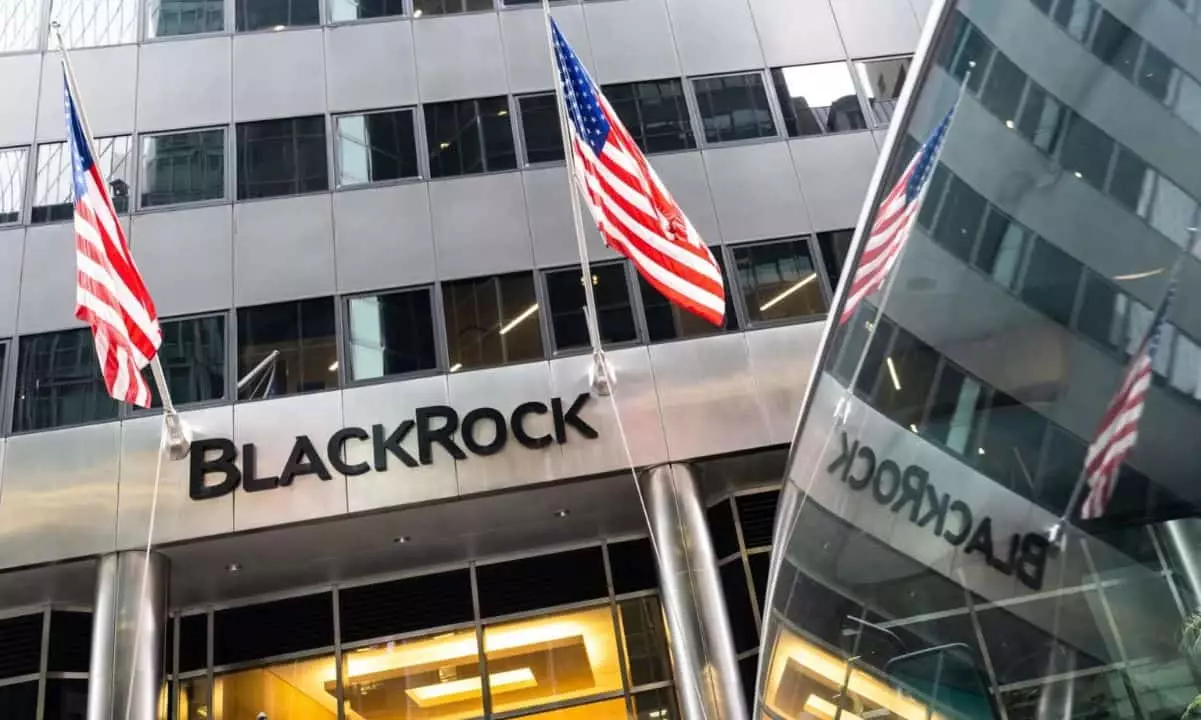BlackRock, a financial giant, has recently made it clear that they do not have any immediate plans to launch a Solana (SOL) ETF. This decision comes despite the overwhelming success of their Bitcoin and Ethereum spot ETFs that were introduced earlier in the year. The company’s Chief Investment Officer, Samara Cohen, mentioned in an interview with Bloomberg that a BlackRock Solana ETF launch is off the table for the time being. According to Cohen, BlackRock prioritizes investability when considering new ETF offerings, and currently, Bitcoin and Ethereum are the only cryptocurrencies that meet their criteria.
Both Bitcoin and Ethereum have witnessed significant success with BlackRock’s spot ETFs. The iShares Bitcoin Trust (IBIT) has attracted close to $20 billion in flows since its launch on January 11, which makes it the best-performing ETF in history during the opening 30 days. On the other hand, BlackRock’s Ethereum ETF has already accumulated $440 million in ETH after just one week of trading, based on on-chain data. These strong performances have solidified the position of Bitcoin and Ethereum as top choices for investors seeking exposure to cryptocurrencies.
Despite the success of Bitcoin and Ethereum ETFs, the case for launching a Solana ETF remains questionable. During the Bitcoin 2024 event, BlackRock’s Head of Digital Assets, Robert Mitchnick, pointed out that Solana’s market share in the crypto industry is currently insignificant, standing at around 3%. Mitchnick emphasized that Solana lacks the maturity, liquidity, and track record needed to compete with Bitcoin and Ethereum as an investable asset.
In a surprising turn of events, VanEck became the first company to file for a Solana spot ETF in the United States in late June. VanEck argued that regulators should approve their request for public trading of a Solana ETF, citing similarities between SOL and other established digital commodities such as BTC and ETH. Matthew Sigel, VanEck’s head of digital asset research, highlighted that SOL can be traded on digital platforms and used for peer-to-peer transactions, much like Ether on the Ethereum network. However, unlike Bitcoin and Ethereum, Solana currently does not have a futures market on the CME, which could affect its chances of getting approval for a spot ETF.
The Securities and Exchange Commission (SEC) has raised concerns about whether SOL qualifies as a security token. This issue was brought to light during a lawsuit against Coinbase, where the SEC alleged that SOL might fall under the category of security tokens. This regulatory uncertainty surrounding Solana adds another layer of complexity to the debate over launching a Solana ETF.
The decision by BlackRock to hold off on a Solana ETF launch reflects the company’s cautious approach towards new investment offerings. While Bitcoin and Ethereum have established themselves as frontrunners in the cryptocurrency market, Solana’s path to becoming an investable asset remains uncertain. With other asset managers eyeing the potential of a Solana ETF, the future of SOL as an ETF offering hinges on regulatory clarity and market acceptance.

